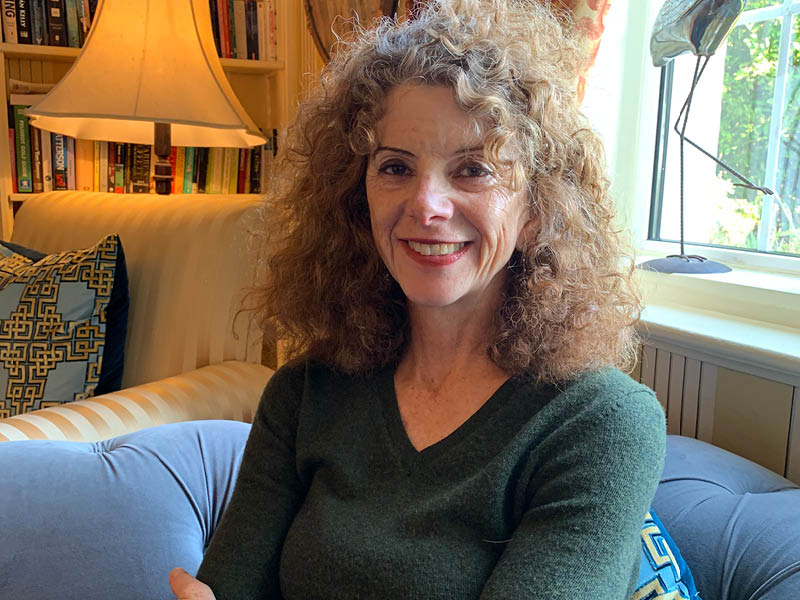
Q&A: Lettie Teague, wine columnist, The Wall Street Journal
One of the world’s most influential wine writers is also one of the least visible. Felicity Carter catches up with the multi-talented critic behind the WSJ paywall
As a student, aspiring novelist Lettie Teague lived in Ireland with the family of Peter Dunne, director of Mitchell & Son Wine & Spirit Merchants. Inspired, she moved to New York after graduating and joined the wine trade. “I would always take ‘no’ for an answer when I was trying to sell wine,” she says. “I would walk in and they’d be, ‘no, we can’t sell that’, and I’d say ‘OK’ and leave.”
Luckily, she found a way to mine her “failures in the restaurant, retail and wholesale world”. She became a wine writer. Today, Lettie is the wine columnist for the Wall Street Journal (WSJ), one of the world’s most prestigious newspapers. Because of the paywall and the WSJ’s strict code of ethics – no wine dinners, press trips or free samples – she’s in the peculiar position of being one of the US’s most influential wine writers, while being one of its least visible within the wine trade itself.
What makes her different isn’t her way of explaining wine culture and recommending wine, but the lengths she’s prepared to go to for a story.
Before the WSJ, Lettie was the executive wine editor for Food & Wine magazine, at a time when publishing was still robust. It was also the period when wine counterfeits were in the news. So when Lettie decided to create some fake wine of her own, Food & Wine gave her carte blanche – and the budget – to proceed.
She bought a bottle of 1982 Mouton Rothschild and flew to Seattle to meet winemaker Chris Camarda of Washington State’s Andrew Will winery. They tasted the wine and then Camarda created a fake version of the Bordeaux from his own wines. Lettie took it home, served it to wine-knowledgeable friends and recorded their – generally favourable – reactions. (The reaction to the article itself wasn’t so favourable; she lost a friend.)
Lettie notes that the setting, the other fine wines served, and her own credibility as a wine critic helped disarm the tasters. However, that experience, plus a later tasting of counterfeit wines with collector Bill Koch, made her realise how easy it is for determined fraudsters to dupe wine lovers – and how much talent it takes. “The fake ones were really good,” she says of the Koch tasting.
The days of buying investment-grade wines and staging elaborate pranks inevitably came to an end after the global financial crisis and subsequent media collapse. In early 2009, Food & Wine cut her position, though she wrote a column for it for a while.
Life at the Journal
A key piece of Rupert Murdoch’s media empire, the WSJ is housed in a skyscraper in the middle of Manhattan. The external walls are plastered with pictures of Fox News hosts; inside, the elevator screens broadcast Fox News. Despite that, it remains one of the world’s most hard-hitting newspapers.
“When I walked into that building and walked among the desks of these really remarkable editors and reporters, I felt like I was on a movie set,” says Lettie.
As soon as Lettie had heard the WSJ wanted a columnist, she sent in ideas and work examples. The counterfeit story “really resonated” and, in March 2010, she became the WSJ’s wine writer. “It was a real education, the transition from magazines to newspapers,” she says. “The Journal has very, very rigorous ethical standards.” Everything Lettie writes goes by a phalanx of editors and is thoroughly fact checked.
The WSJ’s readers are also particularly active. They not only comment on articles, but send Lettie emails, which she says “are really quite the joy”. Her readers enjoy discussions of sulphite headaches, want to hear about new discovery wines, and – despite being one of America’s most affluent audiences – absolutely love to hear about the latest bargains at Costco. “We know that people love to find deals,” says Lettie.
What’s next?
As for her own drinking preferences, Lettie says: “Chablis is my fall-back under all circumstances.” She’s also been very public in her loathing for Pinotage.
The author of three wine books, she’s now working on another book – though “it’s not a wine book” – or can be found riding. “I have this whole other life as an equestrian.” She certainly does; where other people got through 2020 by buying a Peloton or Instagramming their sourdough, she bought a horse on Facebook.
Today, Lettie is one of only two on-staff wine writers left in America’s newspaper landscape, a testimony to her tenacity, as well as to the unfortunate state of professional wine writing. Because if there’s one thing that wine needs, it’s more journalists with a sense of fun, plus the willingness to explore the subject in novel ways.




